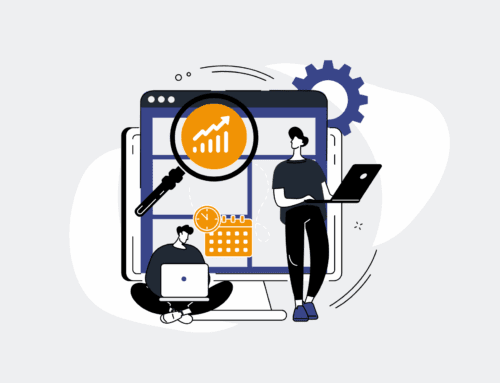Why HR Departments Are Turning to Workflow Automation Consultants Now
The role of Human Resources has fundamentally shifted. Once primarily an administrative function, HR is now at the strategic core of every successful organization. From navigating complex talent markets to fostering employee well-being and ensuring compliance, HR leaders are tasked with more critical responsibilities than ever before. Yet, many departments find themselves drowning in the very operational tasks that prevent them from achieving their strategic potential. This critical juncture is why a growing number of HR departments are now actively seeking the expertise of workflow automation consultants.
The Evolving Landscape of HR: More Than Just People Management
Today’s HR landscape is characterized by rapid change. The war for talent, the rise of remote and hybrid work models, evolving legal frameworks, and the imperative for diverse, equitable, and inclusive workplaces all demand a more sophisticated, data-driven approach. HR is no longer just about hiring and firing; it’s about employee lifecycle management, talent development, culture shaping, and leveraging people analytics to drive business outcomes. However, the foundational processes that underpin these strategic initiatives often remain stuck in manual, time-consuming cycles.
The Burden of Manual Processes: A Drain on Resources
Think about the typical HR day: sifting through hundreds of resumes, manually inputting new hire data, chasing down approvals for performance reviews, preparing offer letters, managing countless spreadsheets for benefits, and answering repetitive employee queries. Each of these tasks, while necessary, consumes valuable time that HR professionals could otherwise dedicate to more impactful, strategic work. This administrative burden leads to bottlenecks, increased human error, and a delayed, often frustrating, experience for both employees and candidates.
The opportunity cost is immense. When HR teams are bogged down by administrative minutiae, they can’t focus on proactive talent scouting, developing robust employee engagement programs, or analyzing workforce trends to inform leadership decisions. This inefficiency doesn’t just impact HR; it ripples across the entire organization, affecting productivity, morale, and ultimately, the bottom line. It’s a challenge that in-house teams, despite their best efforts, often struggle to overcome without external support.
Strategic Shifts: From Reactive to Proactive HR
Forward-thinking organizations understand that HR must evolve from a reactive problem-solver to a proactive strategic partner. This shift necessitates streamlining operations, eliminating redundancies, and leveraging technology to empower HR professionals. Workflow automation is the key to this transformation, allowing HR departments to automate repetitive tasks, integrate disparate systems, and create seamless, efficient processes from recruitment to offboarding. But implementing such a transformation is no small feat.
This is where workflow automation consultants become indispensable. They bring an objective, expert perspective, helping HR departments identify their most pressing pain points, uncover hidden inefficiencies, and design solutions that align with overarching business goals. They don’t just fix problems; they build resilient, scalable systems that prepare HR for future challenges and opportunities.
The Consultant’s Edge: Expertise Beyond In-House Capabilities
While many HR departments are aware of the benefits of automation, they often lack the specialized knowledge, time, or dedicated resources to effectively implement complex solutions. Automation consultants, like 4Spot Consulting, offer a unique blend of technical expertise and strategic insight. They understand the nuances of HR operations and are proficient in connecting dozens of SaaS systems, often utilizing powerful low-code platforms like Make.com to create bespoke workflows.
Consultants provide a strategic roadmap, moving beyond simple task automation to create an integrated ecosystem where HR systems communicate seamlessly. This comprehensive approach, often guided by frameworks like our OpsMap™ audit, ensures that every automation initiative is tied to clear business outcomes, whether it’s reducing time-to-hire, improving data accuracy, or enhancing the employee experience.
Unlocking Tangible ROI: The 4Spot Consulting Approach
The decision to engage a workflow automation consultant is ultimately a financial one, driven by the desire for tangible return on investment. Consultants focus on delivering measurable results: significant time savings, reduced operational costs, and improved efficiency. For instance, we recently partnered with an HR tech client facing overwhelming manual resume intake. By implementing an automated resume parsing and data syncing system using Make.com and AI enrichment, integrating directly with their Keap CRM, we helped them save over 150 hours per month. This allowed their team to shift from “drowning in manual work to having a system that just works,” freeing them to focus on high-value candidate engagement.
This isn’t just about saving time; it’s about enabling strategic growth. When HR can operate with greater agility and insight, it directly contributes to better talent acquisition, higher retention rates, and a more productive workforce. Automation allows HR to become a true profit center, not just a cost center.
A Future-Proof HR: Scalability and Strategic Impact
In an increasingly competitive and dynamic business environment, HR departments cannot afford to be left behind. Turning to workflow automation consultants is not merely about adopting new technology; it’s about investing in the future of the organization. It’s about building a scalable HR infrastructure that can adapt to growth, mitigate risks, and empower employees. By automating repetitive tasks, HR leaders can finally dedicate their expertise to strategic initiatives that truly impact the business, ensuring their organization remains competitive and agile.
If you would like to read more, we recommend this article: Strategic HR’s New Era: The Indispensable Role of AI Automation Consultants







